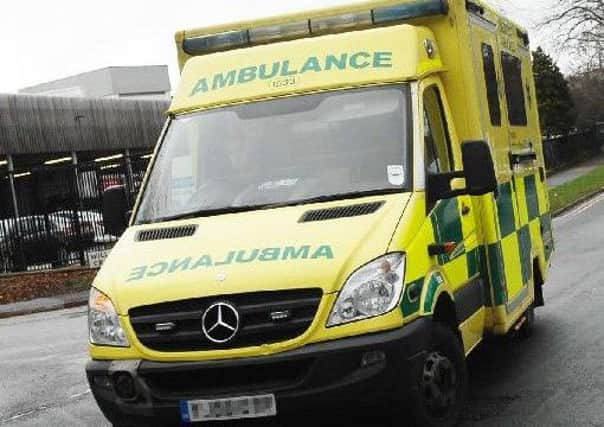Almost a quarter of ambulance staff take time off due to stress


Research by the GMB union, which represents ambulance staff, revealed 22% of North East Ambulance Service staff, including paramedics, had to take time off from work due to stress, anxiety and related conditions during the last financial year – compared to a national average of 12%.
The figure is the second highest in England behind the East Midlands.
Advertisement
Hide AdAdvertisement
Hide AdMr Hill said: “A National Audit Office report published this year found that NEAS received £26.70 per head in funding, which is almost £10 lower than in the South East and £8 lower than North Yorkshire.
“Added to this chronic underfunding there are the obvious pressures which go with the difficult and challenging job carried out by paramedics, and recruitment and retention issues.
“Underfunding means less resources which consequently leaves the service over stretched, often resulting in long waiting times for patients.
“This in turn places an extra burden and stress on responders, which is bound to ultimately have a negative effect on their own mental health and wellbeing.
Advertisement
Hide AdAdvertisement
Hide Ad“The Government needs to step in and tackle this inequality in funding and properly resource this vital public service.”
Yvonne Ormston, NEAS Chief Executive, said a national shortage of paramedics and er factors in recent years had put more pressure on staff, but it hasrecently recruited 42 more paramedics and 42 emergency care technicians.
Ms Ormston said: “The nature of our service means working on the frontline can be physically and emotionally demanding for our hard-working staff.
“We have many measures in place to support our workforce, including an in-house Occupational Health team who provide bespoke support and signposting to physiotherapists, doctors, clinical psychologists and other counselling services.
Advertisement
Hide AdAdvertisement
Hide Ad“We have invested heavily in front line managers, who have a dedicated role to debrief with frontline employees to support them immediately after a difficult incident and beyond.
“We also adopted the MIND Blue Light campaign and have at least 30 in house champions, trained in supporting their peers. Prior to the National Audit Office report we had spent over two years delivering a prolonged recruitment campaign to fill paramedic vacancies within the service and reached establishment in March 2017.
“Since the report earlier this year and feedback from CQC inspectors, we have worked with our commissioners to secure additional funding for a further 42 paramedics and 42 emergency care technicians, which will help in narrowing the gap and relieving pressures on our existing staff.”